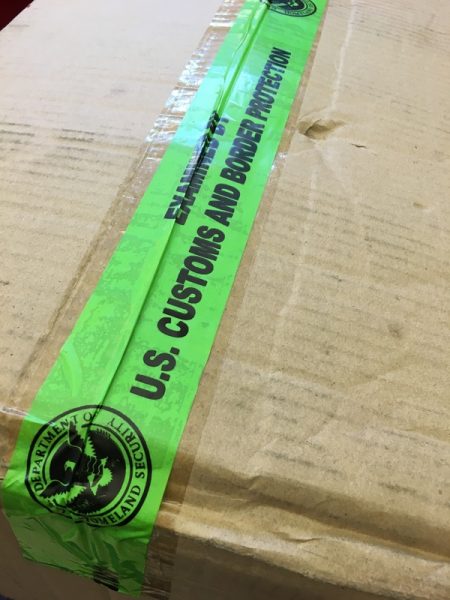The Court of Appeals for the Third Circuit recently reversed a lower court ruling and held that failure to pay marking duties is actionable under the False Claims Act. In the case, United States ex rel. Customs Fraud Investigations v. Victaulic Company, a qui tam whistleblower alleged that Victaulic systematically and knowingly imported unmarked goods and failed to pay the required marking duties. The Court of Appeals held these allegations could violate the reverse false claims provision of the False Claims Act.
What are Marking Duties?
Goods imported into the United States must be marked with certain identifying information, such as the country of origin. Enforcement of marking requirements can be done at the time of importation, where if unmarked or inadequately marked goods are discovered the importer has three options: 1) to re-export the goods, 2) destroy the goods or 3) mark them appropriately. But, if unmarked or improperly marked goods are not discovered at the time of importation and an importer releases these goods into the stream of commerce, the importer then owes a “marking duty” of 10 percent of the imported goods’ value.
The Underlying Case
The relator in the case Customs Fraud Investigations (CFI) alleged that Victaulic, an importer of pipe fittings, imported millions of pounds of pipe fittings without disclosing that the fittings were improperly marked. CFI alleged that by not disclosing to Customs and Border Protection (CBP) that the fittings were not marked, Victaulic avoided paying money it owed to the federal government and thus violated the “reverse false claims provision” of the False Claims Act; which imposes liability on a defendant who “knowingly makes, uses, or causes to be made or used, a false record or statement to conceal, avoid, or decrease an obligation to pay or transmit money or property to the Government.” 31 U.S.C. § 3729(a)(1)(G) (2009)
The Ruling
The key to the Third Circuit’s ruling was the 2009 FERA amendments to the False Claims Act, which added an express definition of the term “obligation” to the Act. “Obligation” is thus defined as “an established duty, whether or not fixed, arising from an express or implied contractual, grantor-grantee, or licensor-licensee relationship, from a fee-based or similar relationship, from statute or regulation, or from the retention of any overpayment.” 31 U.S.C. § 3729(b)(3) (2009). The Third Circuit’s opinion also noted the significance of the a FERA Senate Report discussing the definition of the term “obligation,” stating “customs duties clearly fall within the new definition of the term ‘obligation.’” Therefore, the Court of Appeals held: “[t]he statutory text, legislative history, and policy rationale underlying the regulatory scheme all lead to one conclusion: reverse false claims liability may attach as a result of avoiding marking duties.”
This decision is a favorable ruling for False Claims Act plaintiffs, particularly in the area of customs fraud. The ruling provides further evidence that the courts are interpreting the FERA amendments as they were intended: to provide more expansive liability for those who seek to defraud the government in novel ways, including avoidance of customs duties.






Talk with an Expert
Frohsin Barger & Walthall
Call 205.933.4006 or
Send us a Message